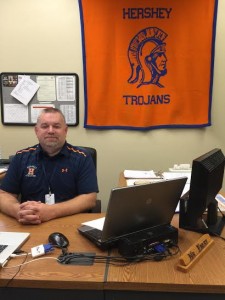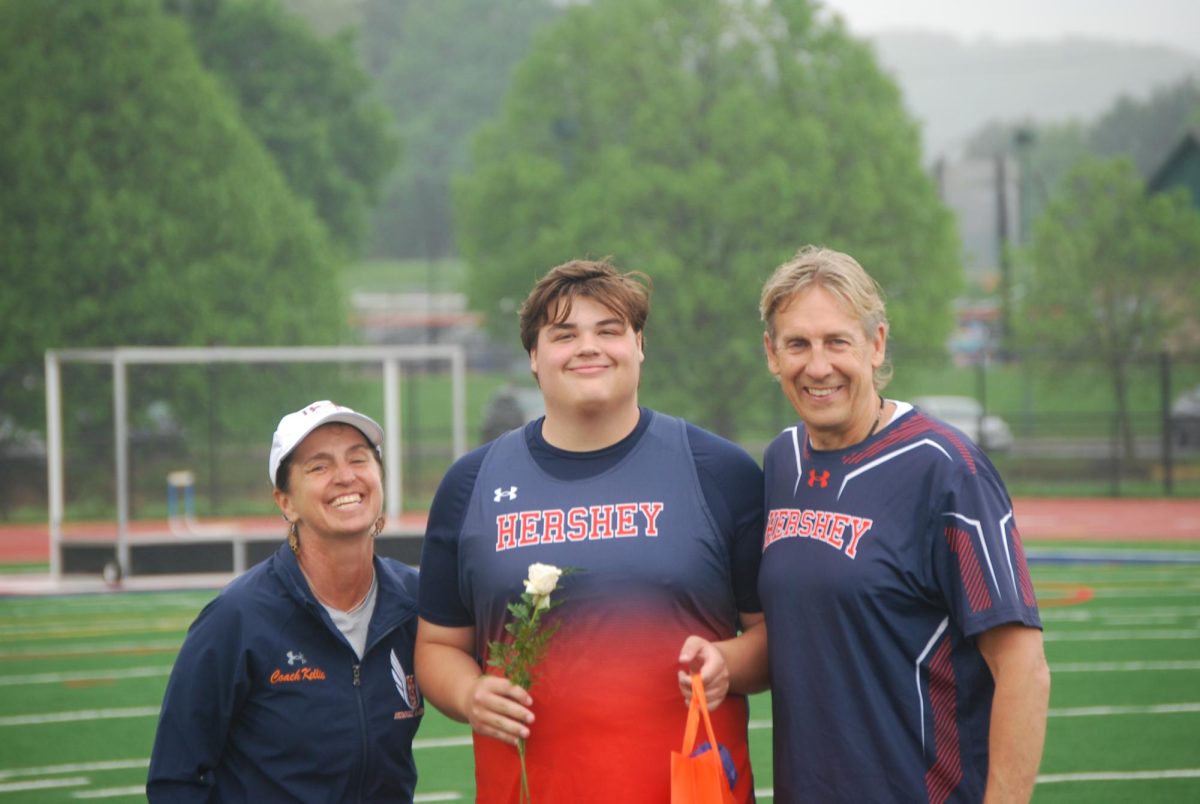By: Hannah Gundermann
Imagine another student telling you that the death of your great grandmother is their favorite holiday.
Public high school students of the twenty-first-century still deal with adversity everyday when they walk through the doors. Hershey High School students are lacking respect for other students religious choices. This is demonstrated daily through the hurtful actions and words of people in our community.
Abby Shapiro, sophomore at HHS, experienced the equivalent to the previous example when a fellow classmate told her that their favorite holiday is the Holocaust.
“Students need to be educated further on religion in order for them to develop a respect for one another,” said Shapiro.
Shapiro is Jewish. Shapiro said that she is frequently discriminated against by her peers.

According to The Pew Research Center, in Pennsylvania, only 1% of the population is Jewish. Shapiro finds that not many people know much about Judaism.
One of the important elements in Judaism are the holidays. At Hershey, Jewish holidays are still school days, but Derry Township Schools most Christian holidays are days off.
The Pew Research Center found that 73% of Pennsylvania is Christian.
Shapiro was surprised recently when we had off of school for Yom Kippur on September 23, 2015.
“The school should have said why we had off of school for Yom Kippur. It was a very important day for me and the people of my religion,” said Shapiro. She said this because the school district never titled our day off as usual with “Winter Recess” and “Spring Recess.”
Shapiro is not the only one facing religious discrimination at HHS.
Another sophomore, Omer Qureshi, feels similarly. Qureshi identifies with being Muslim. This adversity is not uncommon to him since most of his life has been post September 11, 2001. This event caused a lot of Americas to be more judgemental towards Islamic people.
According to a poll conducted by The Washington Post, Americans having a favorable view towards Muslim-Americans was around 47% during October 2001. By September 2014 that number has decreased to 27%.
“There is occasionally the off-hand comment, which I’ve realised is going to be constant,” said Qureshi. He has learned not to take it to heart over the years.
Qureshi thinks that the lack of diversity in our community contributes to the discrimination towards him. “Our area isn’t very diverse, religiously, so students don’t get exposed to religions that aren’t their own,” said Qureshi.
Eric Krieger, junior at HHS, blames the size of our town to the lack of religious diversity. He thinks that if we were closer to the population of a city these issues may not be as prominent with students.
Another shift in our country’s religious data has been an increase in the “unaffiliated” category. Data from The Pew Research Center reflects that 11% of ours country’s citizens born from 1928-1945 identified as being unaffiliated with a religion. Whereas the unaffiliated percent is around 36% for people born from 1990-1996.
This is a concern for some. It is a possible contribution to the amount of discrimination students face based on their religious choices.
“Students spend a lot of time doing other things, and religion tends not to be a priority anymore,” said Krieger.
Shapiro feels that if we educated students more on all religions, it would make them more understanding of other students religious choices.

After conducting a survey with 47 HHS students throughout October 2015, it was found that 23% of students report being offended based on their religion at school. These offenses have been from other students, teachers, and the curriculum.
Considering that Hershey is a public school district, there is a zero tolerance of religious discrimination. This survey also revealed that 50% of students report hearing religious insults during school.
Qureshi and Shapiro both wish the religious discrimination would subside. Neither of them are very hopeful, but want students to at least know more about the religions of the people they walk down the hallway next to.
This is the age of judgement and religion is no exception. “Last year a student called me the equivalent of the N-word in my religion,” said Shapiro.
The Derry Township School takes religious discrimination seriously. Peter Ebert, Assistant Principal at HHS, shared that these offenses mentioned above go against school policy for many reasons. These offenses range from as simple as not being nice to a level II offense.
“Offenses like these are covered under 248, discriminatory harassment, in the handbook,” said Ebert. The punishments for religious discrimination are dependent upon the severity and frequency.

The administration has investigated these issues and would like to make students aware of the zero tolerance policy of religious discrimination at HHS. Students should not be afraid to report any situations they experience or witness.
“Our goal is for our students to follow the COCOA principles,” said Ebert.




